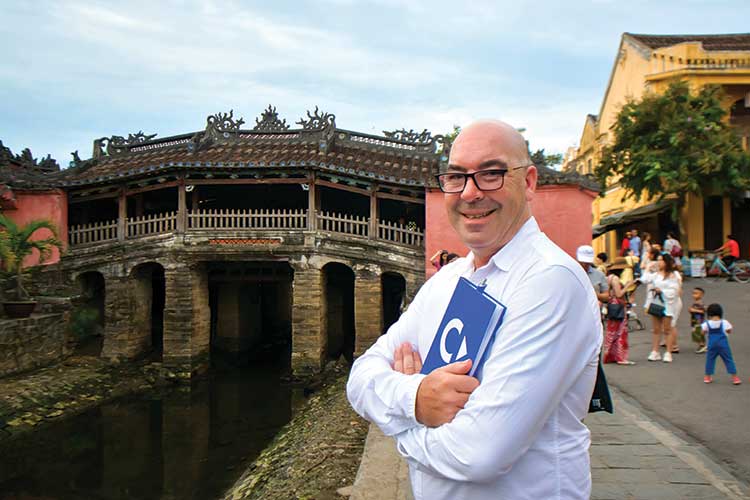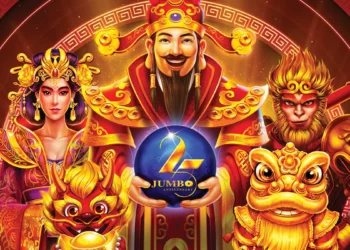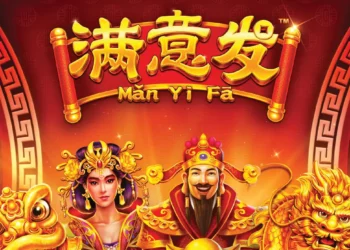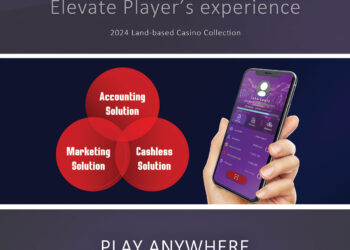Employing a specialist commissioning management team such as Commtech Asia when planning an IR or hospitality development can save substantial cost and hardship.
In the ultra-competitive world of Asia’s integrated resorts, it is the small details that can make all the difference. And it’s the small mistakes that can prove the most costly.
Just ask commissioning management experts Commtech Asia. Since launching into Asia more than 20 years ago, the British-born company has overseen the construction of countless large-scale developments and knows better than anyone the value of getting it right from the outset.
“When it comes to buildings as large and as unique as integrated resorts, doing proper testing and commissioning early on is incredibly important,” explains Commtech Asia’s Project Director, Wayne Saunders.
“The problem the end user has is that it’s very difficult to maintain a building after it’s occupied. The idea of enforcing commissioning management is to iron out all issues at the start so that when the end user takes over they don’t have any defects to deal with, only maintenance of the equipment.”
 As the name suggests, testing and commissioning is a step-by-step process of testing, verifying and documenting system integrity to ensure it works to the approved design criteria and to applicable local and international codes. By doing so, any issues that might arise during this early testing process can be quickly and easily rectified, avoiding a more serious and usually far more costly fix later on.
As the name suggests, testing and commissioning is a step-by-step process of testing, verifying and documenting system integrity to ensure it works to the approved design criteria and to applicable local and international codes. By doing so, any issues that might arise during this early testing process can be quickly and easily rectified, avoiding a more serious and usually far more costly fix later on.
But not all commissioning is born equal. In Southeast Asia, for example, the general approach to commissioning is to task the general contractor or sub-contractor with doing it themselves, essentially eliminating an important element of quality control and unbiased reporting and sign-off.
Although technically speaking the “commissioning” scope is contracted, asking the contractor to verify that their own work is correct to industry standard, and safe, is fraught with danger.
“Relying on contractors to commission the systems is always a bad idea because you won’t get transparency if there is a problem,” says Saunders. “That’s because problems will also create added cost for the contractors, creating a conflict of interest in reporting such shortfalls. They won’t let you know unless it is a serious problem they can’t get away with.
“When Commtech Asia comes in, we’re very transparent with our results. No matter how minor the issue is, we let our client know, and then the contractor can’t get away with not completing their contractual obligation and scope of works.
“It’s incredibly important that it’s all done correctly because what we tend to find is that if we are not involved in the QA/QC (quality assurance and quality control) and startup of the equipment, at that stage when it comes to the integrated systems tests we always find issues. And the issues that we find tend to be quite major at that stage, when they could have been quite minor if the systematic process was followed.”
Such processes become even more important for integrated resort developments, which combine multiple verticals together under one roof – each with their own priorities.
 For casinos, top of the list is maintaining power and life safety systems, “so what we do during our commission stages is an integrated systems test which ensures that, should there be a power blackout, all the emergency generators start up as they are designed to and all life safety measures automatically kick in as intended,” Saunders says.
For casinos, top of the list is maintaining power and life safety systems, “so what we do during our commission stages is an integrated systems test which ensures that, should there be a power blackout, all the emergency generators start up as they are designed to and all life safety measures automatically kick in as intended,” Saunders says.
In a hotel, customer comfort is always a key focus.
“One problem you often find when you go into a hotel room or an office block is that it’s a little bit too cold or a little bit too hot in patches,” Saunders continues. “What tends to happen then is people will turn the thermostat up or turn the thermostat down and it starts to run inefficiently.
“If it is commissioned correctly, you get that guest comfort from day one.”
By providing a full testing and commissioning service, Commtech Asia – whose recent IR projects include Wynn Palace in Macau, Okada Manila in the Philippines and most recently Suncity’s Hoiana in Vietnam – says it can help properties become more sustainable and energy efficient from day one, ensure the reliability and durability of equipment, establish critical systems, minimize environmental impact and provide an exceptional end user experience.
Most importantly, Commtech Asia’s work provides piece of mind against any major and unexpected costs arising further down the track.
“On average, an Independent Commissioning Management consultant will cost about 0.5% to 1% of the overall project value, which is actually just a re-allocation of cost rather than an ‘add-on,’ which I believe for what we do is very small compared to what it could cost the end user if not commissioned correctly,” Saunders says.
Industry studies suggest that a properly efficient commissioned building’s return of investment will be four years due to the system setup and energy efficiency.
“It’s a small cost at the start that could be saving a much larger cost at the end.”
 Ben Blaschke: Can you tell us a bit about your background and how you came to join Commtech Asia?
Ben Blaschke: Can you tell us a bit about your background and how you came to join Commtech Asia?Wayne Saunders: I started in the construction industry in 1997 as an installation electrician and quickly fell into BMS systems which gave me a really good insight into electrical and mechanical plants.
In 2016 I decided to make the move and come over to Asia. I started with Commtech Asia in Hong Kong. Then I was given an opportunity to go to Sydney to work on a hyper-scaled data center. I worked on one data center in Sydney and one in Melbourne.
At the end of 2016 I also came across to Vietnam to do some ISTs (Integrated Systems Testing) for the HSBC banking group where I met my current wife, so Vietnam was always going to play an important part in my life. Commtech Asia landed the Hoiana HASD job and decided to open up an office in Vietnam on the back of that. Now we are looking to expand further into Vietnam and educate the market on the importance of commissioning management.
WS: On a day to day basis I manage our Vietnamese team here in Vietnam.
Every day across all our projects we receive a list of commissioning activities that are going to be taking place, so I assign each team member their role for the day or for the week, however long the duration may be. That keeps me pretty busy because I need to keep up with the drafting of all of the commissioning reports and test scripts.
WS: Culturally it was a real shock, that’s for sure, although it is a very interesting place. From a work perspective they do things differently. In Hong Kong it is quite fast-tracked and similar to what we’d experience in Europe. In Southeast Asia, specialist practices such as commissioning management which we take for granted in Europe and the US, are still a relatively new idea, which means the role is part education, and part actual commissioning, which I enjoy.
 BB: Now that you reside in Vietnam, what appeals to you most about your new home?
BB: Now that you reside in Vietnam, what appeals to you most about your new home?WS: The culture is absolutely fantastic. One of the things I like about Vietnam is everyone is so friendly – they are very family oriented. Everything they do is for their family which is really nice to see.
The weather, depending on where you are, is usually fantastic. Sometimes it’s a little uncomfortable but you get used to it. But the thing that draws me here is the people and the fact they are so friendly. They want to integrate with you and talk to you as much as they can. We live in an estate and our neighbors want us to come around and have dinner with them every single weekend.































